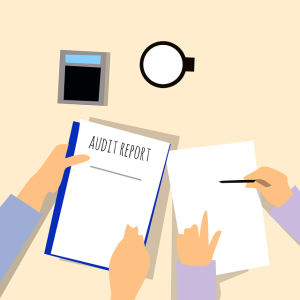In a complex UK corporate tax landscape, accurate document translations are vital for multinationals. Specialized services offer expertise beyond basic translation, ensuring compliance and avoiding penalties. These providers handle nuances in tax terminology and legal systems, minimizing risks for global businesses. Choosing the right service with financial/legal experience and cultural sensitivity is key. Advanced technology, including AI, streamlines processes, enhancing accuracy and efficiency in handling complex translations. Cases demonstrate successful expansions into the UK through professional translation support. Future trends include automation, tax expertise, and robust data security measures to meet growing global business demands.
In the intricate landscape of global business, ensuring compliance with UK corporate tax regulations and their translation requirements is paramount. Accurate tax reporting not only meets legal obligations but also fosters trust and transparency. This comprehensive guide explores the multifaceted world of UK Corporate Tax Documents translation services, delving into critical aspects such as understanding regulatory nuances, overcoming translation challenges, selecting expert providers, cultural sensitivity, best practices for validation, automation’s role, and successful case studies.
- Understanding UK Corporate Tax Regulations and Their Translation Requirements
- The Importance of Accurate and Compliant Tax Reporting
- Challenges in Translating Corporate Tax Documents
- Selecting the Right Translation Service for Your Needs
- Ensuring Cultural Sensitivity and Legal Accuracy in Translations
- Best Practices for Validating and Reviewing Translated Tax Reports
- Automation and Technology in Streamlining Translation Processes
- Case Studies: Success Stories of Effective Corporate Tax Translation
- Future Trends in UK Corporate Tax Document Translation Services
Understanding UK Corporate Tax Regulations and Their Translation Requirements

The UK has a complex corporate tax system, with regulations that are continually evolving. For multinational corporations operating in the UK or those looking to expand their business there, ensuring compliance with local tax laws is paramount. This includes accurately translating and filing UK Corporate Tax Documents, which can be a significant challenge due to the nuances of language and tax terminology.
Professional translation services play a crucial role in navigating these requirements. They provide specialized UK Corporate Tax Documents translation services, ensuring that critical financial information is conveyed with precision and accuracy. These services go beyond simple word-for-word translations, incorporating tax expertise to capture the intent and meaning of the original documents. By leveraging such services, companies can minimize risks of errors, penalties, or audits related to tax report submission.
The Importance of Accurate and Compliant Tax Reporting

Accurate and compliant tax reporting is paramount for any business operating in the UK, or indeed, anywhere in the world. With complex global tax regulations, ensuring your corporate tax documents are correctly translated and submitted is not just a legal requirement but also vital for maintaining strong financial integrity. Inaccurate or non-compliant submissions can result in significant penalties, damage to reputational standing, and legal complications.
For multinational corporations with operations spanning borders, the need for reliable UK Corporate Tax Documents translation services cannot be overstated. Professional translation ensures that tax information is not only accurately conveyed but also adapts to the nuances of different languages and legal systems. This meticulous process helps businesses avoid costly mistakes and fosters a culture of transparency and accountability in their tax reporting practices.
Challenges in Translating Corporate Tax Documents

Translating corporate tax documents involves more than just word-for-word substitutions. In the complex world of UK Corporate Tax Documents, nuances in language and legal terminology can significantly impact compliance. Misinterpretations or inaccuracies during translation may lead to serious errors in financial reporting, potentially causing delays, fines, or even legal repercussions.
Specialized translation services are essential for navigating these challenges. Professional translators with expertise in tax legislation and accounting terms ensure that technical concepts are conveyed accurately across languages. They also grasp the importance of maintaining consistency in terminology throughout the document to avoid confusion. This meticulous approach is vital for UK businesses aiming to meet regulatory requirements and foster trust with tax authorities.
Selecting the Right Translation Service for Your Needs

When it comes to ensuring compliance with translated corporate tax reports in the UK, selecting the right translation service is paramount. Look for a provider that specialises in financial and legal documents, as these fields require precise and accurate translations. Check their credentials, experience, and if they have native-level speakers on staff to guarantee linguistic fluency.
Reputable UK Corporate Tax Documents translation services should offer not just accuracy but also cultural sensitivity. They should understand the nuances of tax regulations in both the source and target languages, ensuring that translated documents perfectly convey the intended meaning. Look for client testimonials and case studies to gauge their expertise and reliability before entrusting your critical corporate tax documents to their care.
Ensuring Cultural Sensitivity and Legal Accuracy in Translations

When translating UK corporate tax documents, cultural sensitivity and legal accuracy are paramount. Professional translation services understand that tax laws vary greatly across regions, requiring experts who are well-versed in both the source and target languages. They employ terminologists specializing in finance and law to ensure precise translations of critical terms and concepts. This meticulous approach not only avoids costly errors but also ensures compliance with local regulations, a vital aspect for businesses operating internationally or looking to expand their global footprint.
Moreover, cultural sensitivity is crucial. UK corporate tax documents often contain references that might have specific meanings or connotations in the source culture. Skilled translators appreciate these nuances and replace them with equivalent terms that resonate with the target audience, maintaining the integrity of the original message while respecting cultural differences. This dual focus on accuracy and sensitivity guarantees that translated documents are not only legally sound but also culturally appropriate, facilitating seamless communication across borders.
Best Practices for Validating and Reviewing Translated Tax Reports

When it comes to translated corporate tax reports, especially in the UK, where multilingual compliance is essential, meticulous validation and review processes are paramount. The best practice involves employing a multi-faceted approach that combines both technical expertise and linguistic proficiency. Start by ensuring that qualified translators with specific tax knowledge handle the documents. These experts should be well-versed in both the source and target languages to accurately convey complex tax terminologies and concepts.
Next, implement rigorous quality assurance checks. This includes proofreading for grammatical errors and consistency across the entire report. Additionally, consider using translation memory tools that help maintain terminology accuracy and reduce potential inconsistencies. A robust review process should also involve comparing the translated document against the original, identifying any discrepancies, and ensuring compliance with UK tax regulations. Regular feedback loops between tax professionals and translators are vital to refining this process over time.
Automation and Technology in Streamlining Translation Processes

Automation and technology have revolutionized the way we approach translation processes, particularly in the complex realm of UK corporate tax documents. Advanced tools can efficiently handle large volumes of text, ensuring accuracy and consistency throughout. Machine translation software, for instance, can swiftly translate financial reports, contracts, and other legal documents, providing a foundational layer of compliance.
These technologies often incorporate AI capabilities, allowing them to learn from each translation, improve over time, and adapt to the nuances of different languages and terminologies. By leveraging UK Corporate Tax Documents translation services with automated workflows, businesses can streamline their reporting processes, reduce human error, and meet regulatory deadlines with greater efficiency.
Case Studies: Success Stories of Effective Corporate Tax Translation

In today’s global business landscape, many companies operate across borders, making it imperative to ensure compliance with local tax regulations. UK Corporate Tax Documents translation services play a pivotal role in this process, offering success stories that demonstrate their effectiveness. One notable case involves a multinational corporation that expanded into several European Union (EU) member states. To ensure seamless operations and adherence to varying tax laws, they partnered with professional translators who specialised in corporate tax documentation. The result was a streamlined translation process that maintained the accuracy of critical financial information, enabling the company to meet their legal obligations efficiently.
Another success story highlights the importance of context in translation. A global technology firm faced challenges when translating their annual tax reports into multiple languages. By employing translators with not only linguistic expertise but also a deep understanding of tax methodologies worldwide, they avoided potential pitfalls and miscommunications. This approach ensured that the translated documents accurately represented the original data, facilitating accurate reporting across different jurisdictions. These examples underscore the value of professional UK Corporate Tax Documents translation services in facilitating global business growth while maintaining compliance.
Future Trends in UK Corporate Tax Document Translation Services

The future of UK corporate tax document translation services is poised for significant evolution, driven by advancements in technology and a growing demand for global business expansion. Automation and machine translation tools are expected to play a pivotal role, offering increased speed and efficiency while maintaining accuracy. These technologies can handle vast volumes of documents, ensuring that even the most complex tax reports are translated promptly. With the UK’s economic landscape becoming increasingly globalized, businesses will require seamless, high-quality translations to navigate cross-border tax obligations effectively.
Specialized translation service providers will continue to adapt by investing in skilled professionals who understand both the nuances of tax terminology and the legal framework. This combination of technology and human expertise will be crucial in addressing the challenges posed by dynamic tax laws and ensuring compliance across diverse jurisdictions. Moreover, with data security and privacy becoming paramount concerns, translation companies will implement robust measures to safeguard sensitive corporate information during the translation process.
In conclusion, navigating the complexities of UK corporate tax regulations and their translation requirements is paramount for businesses aiming for compliance and accuracy. As seen in the diverse range of topics discussed, from understanding regulatory nuances to leveraging technology, ensuring precise and culturally sensitive translated tax reports is achievable through informed decisions and strategic partnerships. For companies operating within the realm of UK corporate tax documents translation services, adopting best practices and staying abreast of emerging trends will foster success and enable efficient compliance management.
